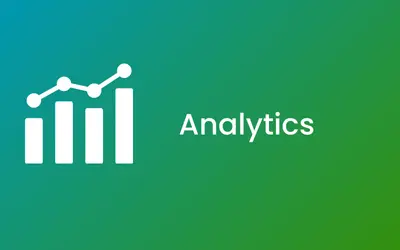Atlanta is a bustling city with a thriving business landscape, making it an excellent location for pursuing education in analytics. Analytics is a field that uses data to gain insights that inform business decisions, and an analytics course in Atlanta can provide students with in-depth knowledge and skills that can lead to exciting career opportunities. There are several institutions in Atlanta that offer analytics courses, ranging from universities to specialized training centers. Some of the most notable institutions that offer analytics courses include Georgia Institute of Technology, Emory University, and the Data Science Academy. Georgia Institute of Technology offers a Master of Science in Analytics program that combines statistical and computational methods with practical business insight. This program focuses on data management, descriptive and predictive modeling, and data visualization. Students will learn how to apply analytical techniques to data-rich environments in various industries, such as healthcare, logistics, and retail. Emory University also offers a Master of Science in Business Analytics program. This program emphasizes the use of advanced analytics tools and techniques to solve business problems. Students will learn how to work with big data, conduct advanced statistical analysis, and develop strategies that can help businesses optimize their operations. The Data Science Academy is a specialized training center that offers a range of courses in analytics. Their courses cover various topics, such as data mining, machine learning, and business analytics. The courses are taught by industry experts, and students can earn certificates upon completion. One of the significant advantages of pursuing an analytics course in Atlanta is the city's vibrant business ecosystem. Atlanta is home to major companies, such as Coca-Cola, Delta Air Lines, and Home Depot, among others. These companies rely on analytics to make data-driven decisions that drive success, creating ample opportunities for analytics professionals to find exciting careers in various industries. Another advantage of studying in Atlanta is the city's diverse community and culture. Atlanta has a rich diversity of people from various backgrounds, making it an excellent location to develop a global perspective. This diversity can be invaluable for students in analytics, as it can help them understand and analyze data from different cultural and geographic contexts. In conclusion, an analytics course in Atlanta can provide students with the knowledge and skills they need to excel in this rapidly growing field. With world-class institutions and a vibrant business ecosystem, students can gain the industry-relevant knowledge they need to succeed in their careers. Additionally, the city's diverse community and culture can further enrich students' experience and prepare them for the global nature of business analytics.

₹60,000


Watch how students, freshers, and professionals transformed their careers with Skillfloor's Analytics Courses Reviews
Hurry Up!
Limited seats call us now for amazing discounts on Analytics Courses course



Skillfloor is a Government-Recognized Skill Development Institute under Startup India (DPIIT), offering career-focused certification programs in Analytics, Artificial Intelligence (AI), Data Science, Digital Marketing, SEO, and related domains. As one of India's largest training institutes, our courses emphasize hands-on projects, expert mentorship, and skills aligned with real hiring needs. With flexible learning options - online, offline, and hybrid, plus 100% scholarships for selective students, we make quality, job-ready education accessible.
Explore the program that aligns with your goals and take the next step with Skillfloor.



- Overview of data analysis and its importance in business
- Types of analytics: Descriptive, Predictive, Prescriptive
- Role of data in decision-making processes
- Introduction to common tools: Tableau, PowerBI, Excel
- Ethical considerations in data collection and analysis
- Data sources: Primary and secondary data
- Data collection methods (surveys, web scraping, databases)
- Data cleaning techniques (handling missing values, outliers)
- Data transformation and feature engineering
- Data storage concepts (structured vs. unstructured data)
- Descriptive statistics: Mean, median, mode
- Data visualization basics (histograms, scatter plots)
- Identifying data patterns and trends
- Outlier detection and handling methods
- Correlation and causation analysis
- Inferential statistics and probability theory
- Hypothesis testing (t-tests, chi-square tests, ANOVA)
- Measures of central tendency and variability
- Confidence intervals and margin of error
- Regression analysis: Linear and logistic regression
- Principles of effective data visualization
- Types of charts and their uses (bar, line, pie, heatmaps)
- Designing dashboards for different audiences
- Interactive visualization techniques
- Data storytelling for impactful presentations
- Time series analysis and forecasting methods
- Clustering and segmentation analysis
- Decision trees and classification techniques
- Introduction to machine learning in business analytics
- Model evaluation and selection
- Basics of SQL for data manipulation
- Creating databases and relationships
- Aggregating data with SQL (GROUP BY, JOIN)
- Data modeling for business intelligence (star and snowflake schemas)
- Case study: Building a business model with SQL
- Connecting and preparing data in Tableau
- Creating basic visualizations (charts, maps)
- Advanced Tableau functions (LOD calculations, table calculations)
- Building interactive dashboards and stories
- Publishing and sharing visualizations on Tableau Server/Online
- Introduction to PowerBI workspace and components
- Data import and transformation with Power Query
- Data modeling and relationships in PowerBI
- Creating and customizing visualizations
- Publishing and collaborating on PowerBI Service
- Selecting a real-world dataset for analysis
- Defining business questions and objectives
- Conducting data analysis and visualization
- Presenting findings in a comprehensive dashboard
- Peer review and feedback on project